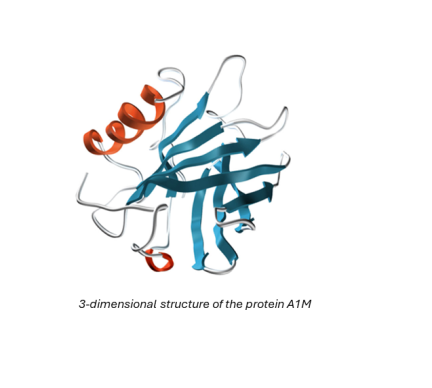Scientific Concept – Strengthening the Body's Natural Defense Against Cell and Organ Damage
A1M (alpha-1-microglobulin) is a naturally occurring and evolutionarily conserved protein found in most animal species, including humans. It has several properties that protect against cell and organ damage. Guard Therapeutics is developing A1M-like drug candidates based on the scientific concept of enhancing the body's own "A1M defense", primarily for the treatment of kidney disease.
The A1M protein is mainly produced in the liver and released into the bloodstream, where it can be absorbed by various tissues and cells throughout the body. It acts as a powerful and universal protection against damage that can occur, for example, due to oxygen deficiency or the byproducts continuously formed in the body's cells.
From a scientific perspective, A1M is attributed with several important functions, including reductase activity, binding of free radicals, and protection of mitochondria. It can also bind and neutralize heme, a breakdown product of the oxygen-carrying protein hemoglobin, which at high levels contributes to cell and organ damage.
In simplified terms, the functions of A1M can be summarized as follows:
- Protects proteins, DNA, mitochondria, cells, and tissues from harmful byproducts.
- Cleans up (captures and neutralizes) harmful substances that arise, for example, from oxygen deficiency (free radicals) or the breakdown of red blood cells (heme).
- Repairs by supporting the body's own regenerative processes.
Guard Therapeutics is developing several A1M-like drug candidates based on the scientific concept of enhancing the body's own "A1M defense." When A1M-like drugs are administered externally, they are rapidly absorbed by the kidneys. For this and other reasons, kidney disease is a key therapeutic area for the company.
